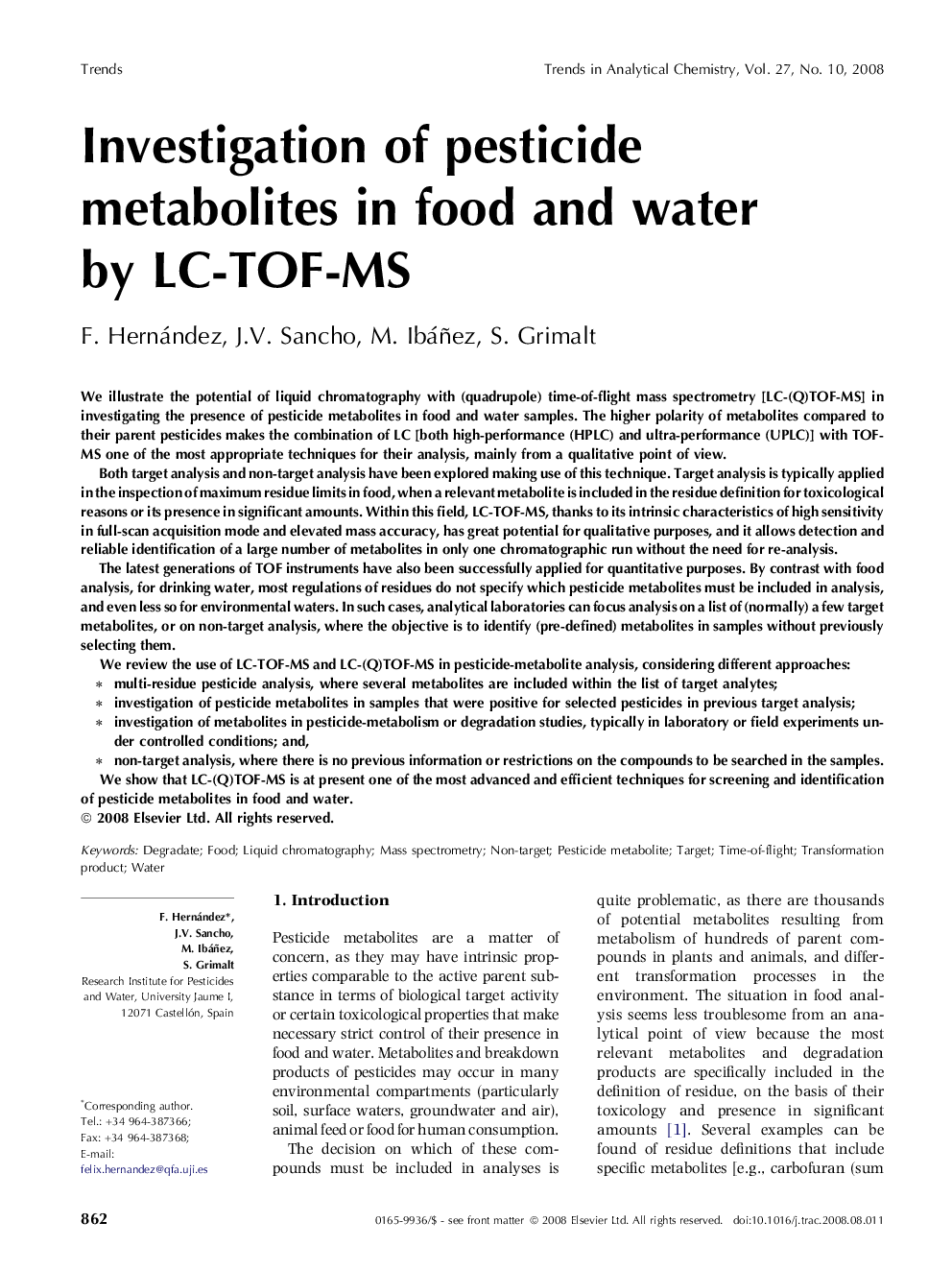| Article ID | Journal | Published Year | Pages | File Type |
|---|---|---|---|---|
| 1248469 | TrAC Trends in Analytical Chemistry | 2008 | 11 Pages |
We illustrate the potential of liquid chromatography with (quadrupole) time-of-flight mass spectrometry [LC-(Q)TOF-MS] in investigating the presence of pesticide metabolites in food and water samples. The higher polarity of metabolites compared to their parent pesticides makes the combination of LC [both high-performance (HPLC) and ultra-performance (UPLC)] with TOF-MS one of the most appropriate techniques for their analysis, mainly from a qualitative point of view.Both target analysis and non-target analysis have been explored making use of this technique. Target analysis is typically applied in the inspection of maximum residue limits in food, when a relevant metabolite is included in the residue definition for toxicological reasons or its presence in significant amounts. Within this field, LC-TOF-MS, thanks to its intrinsic characteristics of high sensitivity in full-scan acquisition mode and elevated mass accuracy, has great potential for qualitative purposes, and it allows detection and reliable identification of a large number of metabolites in only one chromatographic run without the need for re-analysis.The latest generations of TOF instruments have also been successfully applied for quantitative purposes. By contrast with food analysis, for drinking water, most regulations of residues do not specify which pesticide metabolites must be included in analysis, and even less so for environmental waters. In such cases, analytical laboratories can focus analysis on a list of (normally) a few target metabolites, or on non-target analysis, where the objective is to identify (pre-defined) metabolites in samples without previously selecting them.We review the use of LC-TOF-MS and LC-(Q)TOF-MS in pesticide-metabolite analysis, considering different approaches:∗multi-residue pesticide analysis, where several metabolites are included within the list of target analytes;∗investigation of pesticide metabolites in samples that were positive for selected pesticides in previous target analysis;∗investigation of metabolites in pesticide-metabolism or degradation studies, typically in laboratory or field experiments under controlled conditions; and,∗non-target analysis, where there is no previous information or restrictions on the compounds to be searched in the samples.We show that LC-(Q)TOF-MS is at present one of the most advanced and efficient techniques for screening and identification of pesticide metabolites in food and water.
